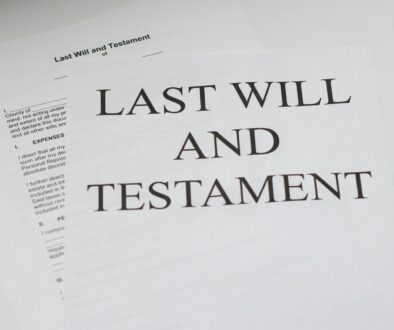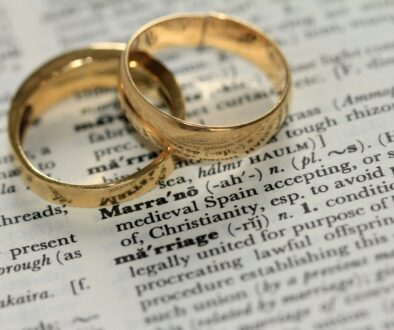Inheritance Tax Reform Re-introduced for Debate
Inheritance Tax Reform Re-introduced for Debate
Unless you have been living on the moon you will have no doubt noticed the increase in the cost of living, which includes the increase in house prices. The average cost of a property in the UK has now increased from £250,000 in April 2021 to £281,000 in April 2022, a whopping 12.4%.
Whilst those lucky enough to be on the property ladder may be feeling happy that, what is most likely their most valuable asset has increased in value, this does mean that thousands more homeowners will be leaving behind estates over the Inheritance Tax threshold. In March this year it was reported that the number of estates being caught in the Inheritance Tax net has increased by 35% within the space of just one year.
The number of estates being caught is not solely because of the increase in house prices (although this is a major contributing factor) but also because the Inheritance Tax threshold has not increased since 2009 when it was set at £325,000, and is set to remain fixed until 2026.
A little background on Inheritance Tax
Since 2009, the first £325,000 of an estate at taxed at 0% (the Nil Rate Band), with anything over that taxed at 40% (or 36% if a certain percentage is left to charity, and ignoring other reliefs which may be available). Whilst the average house price falls below this threshold, it is important to remember that the threshold has not increased despite average house prices increasing by 62% over the last 13 years.
In 2017 the Residence Nil Rate Band was introduced, which gives up to a further £175,000, charged at 0%, and set off against the deceased’s main residence when left to direct descendants (e.g. children or grandchildren). If the property (or share of the property) is worth less than £175,000, the Residence Nil Rate Band will be limited to the value of the property (or share of the property). If the estate is worth over £2m, the amount available by way of the Residence Nil Rate band will be reduced by £1 for every £2 in the estate (so no Residence Nil Rate Band will be available for estates over £2.35m).
Whilst the Residence Nil Rate Band has helped ease the tax burden on many estates, and has increased each year to since its introduction to allow for it to be phased in, these increases stopped in 2020 and are not set to increase further.
Gifts between spouses and civil partners are exempt from inheritance Tax and this can be a very useful tool to allow assets to transfer on a spouse’s death without the immediate worry of funding any Inheritance Tax bill, and unused Nil Rate Bands and Residence Nil Rate Bands on the first death can be transferred to the estate of the survivor. So with a married couple, up to £650,000 is charged at 0%, and should the main residence be left to direct descendants, there could be a possible further £350,000 also taxed at 0%.
What is happening in the House of Lords
There has recently been movement in the House of Lords which suggests that the problems with Inheritance Tax and increasing property prices are not being ignored.
Lord Lexden has reintroduced a Private Members Bill, proposing a change to the Inheritance Tax Act 1984 to allow a tax exemption for transfers between siblings.
Now you may be thinking why is it important that an exemption be brought in for siblings that leave each other gifts in their Wills, and what about cohabiting couples who do not receive the same rights as those that are married or in a civil partnership? You’re right! But this reintroduction of a potential change could pave the way for change for cohabiting couples and hopefully keep the Chancellor on his/her toes about the lack of increase on the thresholds. The fact that there are those Lords and MPs wanting to change the Inheritance Tax rules suggests that the government needs to start listening to social opinion, and perhaps more importantly, take steps to increase the thresholds.
Lord Lexden stated “I will reintroduce the Bill again in the next session of Parliament if, as I suspect, I have no success in this one. If at first, you don’t succeed, try, try and try again!”, and I for one appreciate his determination.
What can we do to help
It’s not a surprise that Inheritance Tax is one of the most hated taxes in the UK. You’ve worked hard to build up your estate and you want to make sure you’re passing on as much as you can to those you love.
We can help you with estate planning to make the most of your Inheritance Tax allowances. Please contact us if you are worried about how your estate may be affected by the Inheritance Tax rules, or want to make sure your estate will be left in accordance with your wishes. We are always happy to discuss your options and help you make the best choice for you and your family.
by Natasha Harding for more information contact nharding@bowcockcuerden.co.uk
(This article is not intended to be comprehensive or to provide specific legal advice. It should not be relied upon in the absence of advice given in relation to particular circumstances.)




